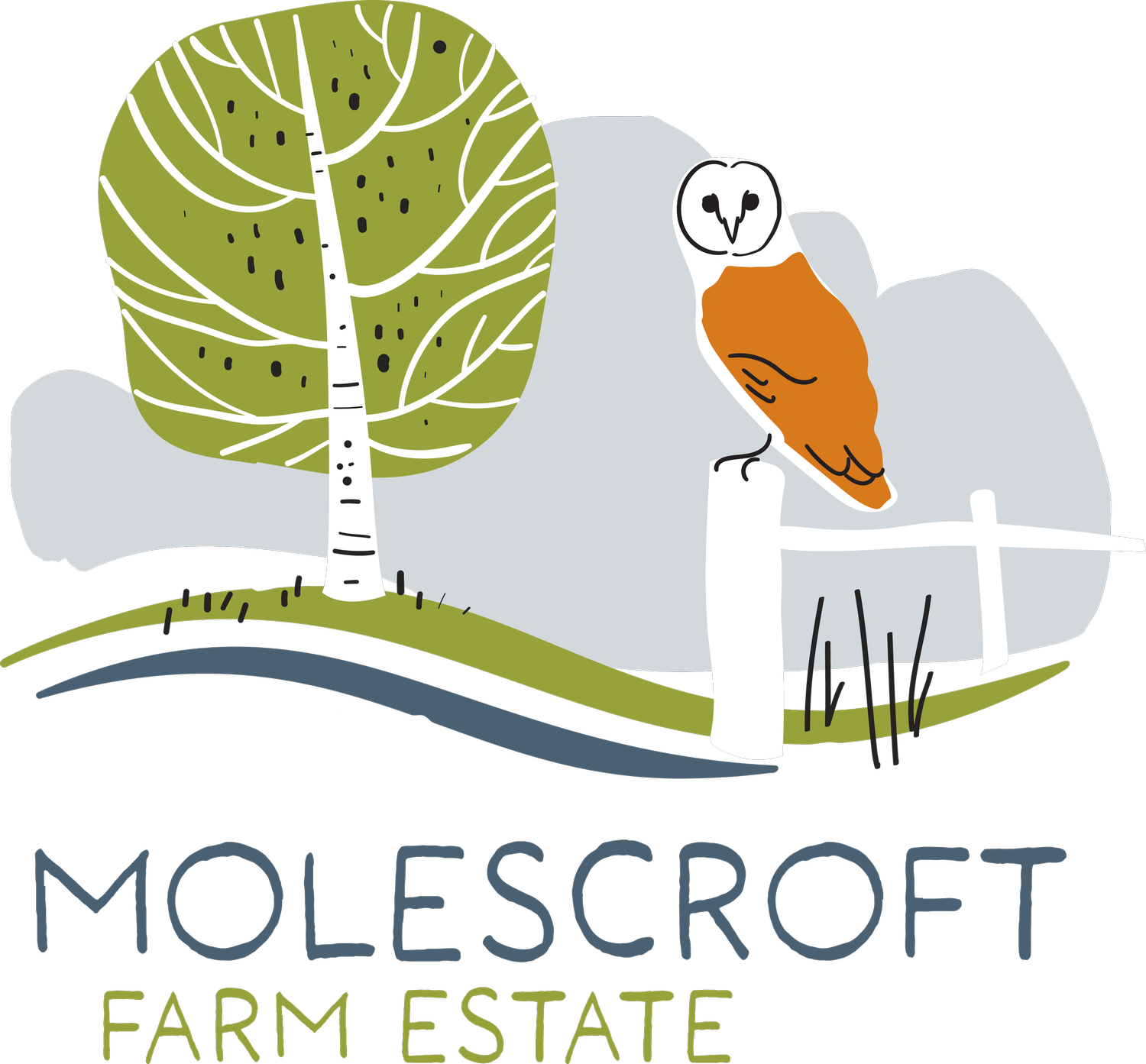
Molescroft Farm History
Molescroft Farm has a fascinating history and has been in the Hall family since the mid 1940’s.
It is currently managed by Tamara Hall and her sister, Camilla, manages the on-site Children’s Nursery.
The present Molescroft Farm is made up of several smaller farms, including Storkhill Farm, Grange Farm, Carr Farm, Constitution Hill Farm and land at Walkington connected to the original Manor Farm.
The main farm at Molescroft was originally called Carr Close or Low Field Farm, and by 1805 was called Molescroft Grange. We believe this is actually the white cottages, with the present Molescroft Grange being built later, around 1910. In medieval times there were fields called Ox Carr, Bullock Carr and Frost Nook (now field 1 and it is still a poor field!). Rent at Storkhill was paid in eels!

The Hall family had been farming in Holderness for generations and were probably descended from Norse stock.
George Hall was farming at Halsham in the 1800’s, the land being down to grass - cattle were grown and the stock were walked to Hull where George Hall ran a butcher’s business. When the Brixham smacks came to fish the silver pits in the North Sea, George Hall provided them meat and became involved in the fishing industry. This link between fishing and farming was common in the East Riding.
Fishing prospered between the wars, the farm at Halsham was added to by the purchase of two wold farms at Walkington by Harold Hall but the outbreak of war caused a collapse as the trawlers were taken over by the navy to be used as mine sweepers and convoy defence vessels. Harold Hall died and his two sons, Donald and Watson went to war.
One of the reasons for the success of the fishing enterprise, and hence the farm, was that Donald Hall, in his 20’s built a new larger trawler. It is was an unprecedented success and allowed the trawlers to go further than they had done in the past and bring home a larger catch in less time at sea.
Watson had learnt to fly and we suppose that he wanted to fly Spitfires, but think that he would have been too old, so he became an intelligence officer in the RAF. Donald joined the Territorials with the East Riding Yeomanry going to France on the outbreak of war. The regiment were a reconnaissance unit and were continually on the move but they were armed with Bren guns transported on Bren gun carriers, and they were no match for the German tanks. Uncle Nick, was also in the East Riding Yeomanry in a different squadron took on a tank with a hand held anti-tank weapon and was seriously wounded for which he was awarded a Military Cross.
On the final retreat to Dunkirk, C Squadron, in which Donald was the second in command, was at Cassell, a village on a small hill, as the rear guard, some distant from Dunkirk. There was no wireless communication, all orders were by motor bicycle and the bicycle with the orders to retreat was held up, not arriving until first light a day late. The Germans were now all round the area so movement in the day light was impossible. The retreat started at dusk with C Squadron as the reconnaissance unit bringing up the rear, but as most of the troops were walking it was slow and on first light C Squadron was still 10 miles from Dunkirk.
The Squadron leader Major Radcliffe was in a small tank and he said he would go through a wood to see if it was clear of the enemy. He was never seen again. The squadron, now led by Donald, tried to get to Dunkirk walking through the woods but ran into a German unit when he was killed. Most of the East Riding Yeomanry were killed or captured.
It is such a tragedy that so many brilliant young people had their lives cut short in such horrific ways in both WWI and WWII. We must never forget what we teach the children at the nursery – to use your words, not your fists.

Harold Hall’s wife and daughter needed living expenses so Harold Hall’s Executors sold the Halsham farm and eventually one of the Walkington farms. When Watson Hall returned from the war he used some of the money paid for loss of the trawlers to buy Molescroft Grange Farm from BOCM (the now defunct British Oil and Cake Mills) where Molescroft Grange had been the BOCM experimental farm. As other farms nearby became available the farm was increased in size which luckily enables the farm to be a viable size, unlike many other family farms.
Watson’s son, Jonathan ran the farm alongside his own business from the 1980’s and in 2003 his daughter, Tamara joined the farm and manages the farm. His other daughter, Camilla manages the Children’s Nursery.


